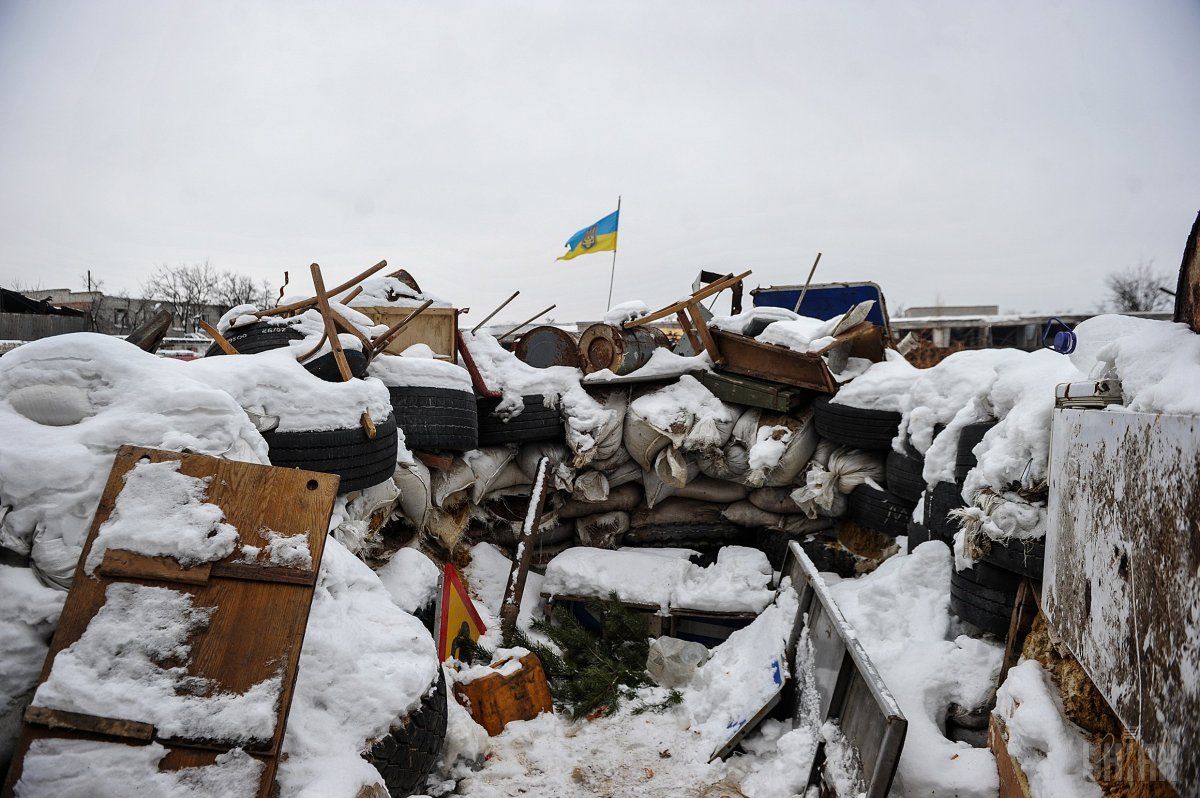
Ukrainian interest. Tension in Avdiyivka, talks in Berlin, and harsh statements in Warsaw
The escalation in Avdiyivka sparked a wave of outrage around the world, which was different from what Russia had expected as it applied its massive media pressure. Petro Poroshenko during his Berlin visit held talks with Angela Merkel. Top officials in Poland have failed to find a better time to express concern about the influence of the historical contradictions on the current state of Polish-Ukrainian relations.
Russia has decided to take full advantage of transition in Washington and assert their claim to the right to play equals. To this end, the Kremlin has targeted Avdiyivka, the Ukrainian-controlled industrial town in Donbas, whose power grid is completely tied to a local coke plant. Due to the fact that the Right Sector troops of the Ukrainian forces have long been holding their ground in Avdiyivka’s industrial zone [the so-called 'promzona,' which is a strategically important location], which for several months has been an epicenter of local hostilities, the Kremlin's logic seems clear enough: to shift responsibility for the escalation of violence to the Ukrainian side, at the same time launching artillery strikes so massive that the reports of shellings could reminisce of Aleppo, thus forcing the West to accept the Russian plan for the Donbas "settlement."
However, the Ukrainian military have stood strong under the fire of the Russian artillery and Grad MLR systems. Besides, the official Kyiv’s humanitarian response, as well as the efforts of volunteer activists, was rather effective. The international community, albeit a bit belatedly, has also made it clear: the blame for the aggression lies with Russia, as it pushes forward the separatists, kept on the Kremlin’s short leash. As for the shelling, it’s the idea of the Russian military, seeking to provoke retaliatory attacks on residential areas of Donetsk where the launchers have been positioned in an ugly “human shield” tactic.
The fighting is accompanied by an unprecedented campaign involving Russia’s top speakers: Putin’s spox Dmitry Peskov provides comments on what is happening in Avdiyivka almost daily, while the Russian leader himself during his visit to Budapest threw a wave of accusations against the Ukrainian authorities. It seems it was particularly important for him to voice these allegations from the territory of the European Union, even more so – from the territory of a Visegrad Four member state.
The meetings of the UN Security Council confirmed that the world's major players have not changed their stance regarding the settlement of the conflict in Donbas. The address by Russian envoy Vitaly Churkin basically echoed Putin’s earlier statement, while the new Permanent Representative of the United States to the UN Nikki Haley appeared to be a worthy successor of Samantha Power in terms of impartiality of the assessments of Russian actions in Ukraine.
Petro Poroshenko visited Berlin on January 30, where he held talks with Angela Merkel and the new Foreign Minister, Sigmar Gabriel. As in the case with the United States, it is important for the Ukrainian leader to secure the support of both of Germany’s leading political forces. Poroshenko noted an unprecedented understanding between Kyiv and Berlin and expressed hope that joint efforts would stop the barbaric shelling of Avdiyivka.
An additional factor in favor of Ukraine was the failure of the Danish Minister of Foreign Affairs Andreas Samuelsen and his Ukrainian counterpart Pavlo Klimkin to get into Shyrokine as the ongoing militant attacks hindered their visit. It should be noted that the Nordic states are consistent in their support of Ukraine. There is also a reason to hope for a renaissance in the Ukrainian-Georgian relations - after a long absence of a Ukrainian ambassador in Georgia, an experienced diplomat Ihor Dolgov was appointed. Meanwhile, Pavlo Klimkin paid an unofficial visit to Israel, probing the ground for the restoration of relations after the recent rift over Ukraine’s vote in the UN Security Council.
Belarus leader Alexander Lukashenko during his seven-hour presser pleased the viewers and listeners with a wide range of resonant statements. The main leitmotif of the record-long press conference is clear: to show all interested parties that the Belarusian president keeps abreast of developments, remaining in full control and not allowing the state to make any unpredictable moves. Only time will tell how convincing Lukashenko was in his address, but such vibrations by Russia's closest ally are unlikely to have been apprehended with ease by the Kremlin.
Polish leaders - the country's leader Andrzej Duda and the ruling party’s chief, Jaroslaw Kaczynski, decided to voice concerns over the influence of historical contradictions on Poland’s relations with Ukraine by saying that their development will be problematic if the official Kyiv does not change its attitude toward the UPA [Ukrainian Resurgent Army]. We are yet to figure out why the leaders of Ukraine’s strategic partner decided to make such statements at the moment of escalation around Avdiyivka, but we should not forget that Poland has not officially called "murderers" the soldiers of its army who were killing the Ukrainians in the 1940s.
Yevgeny Magda

